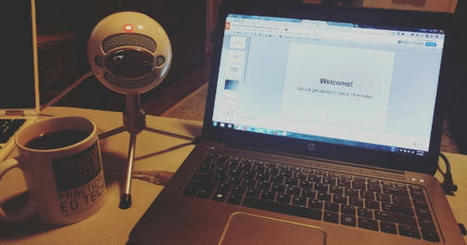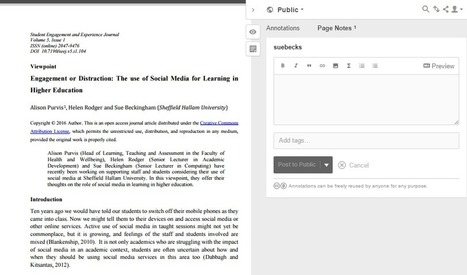Back in 2007 or 2008 I watched a professional development webinar for the first time. I can't remember exactly what the webinar was about (it was something about Second Life), but I do remember thinking that I didn't get "it." After that I watched bunch of free webinars about all kinds of things because that's what I thought I should do to be a modern teacher staying current in his practice. Finally, in late 2011 I paid to join a webinar and something weird happened, I got a lot more out of the experience. Since then almost every webinar I've attended, both free and paid, has been a good learning experience. Here's what I figured out about learning from webinars.
Via Elizabeth E Charles



 Your new post is loading...
Your new post is loading...












